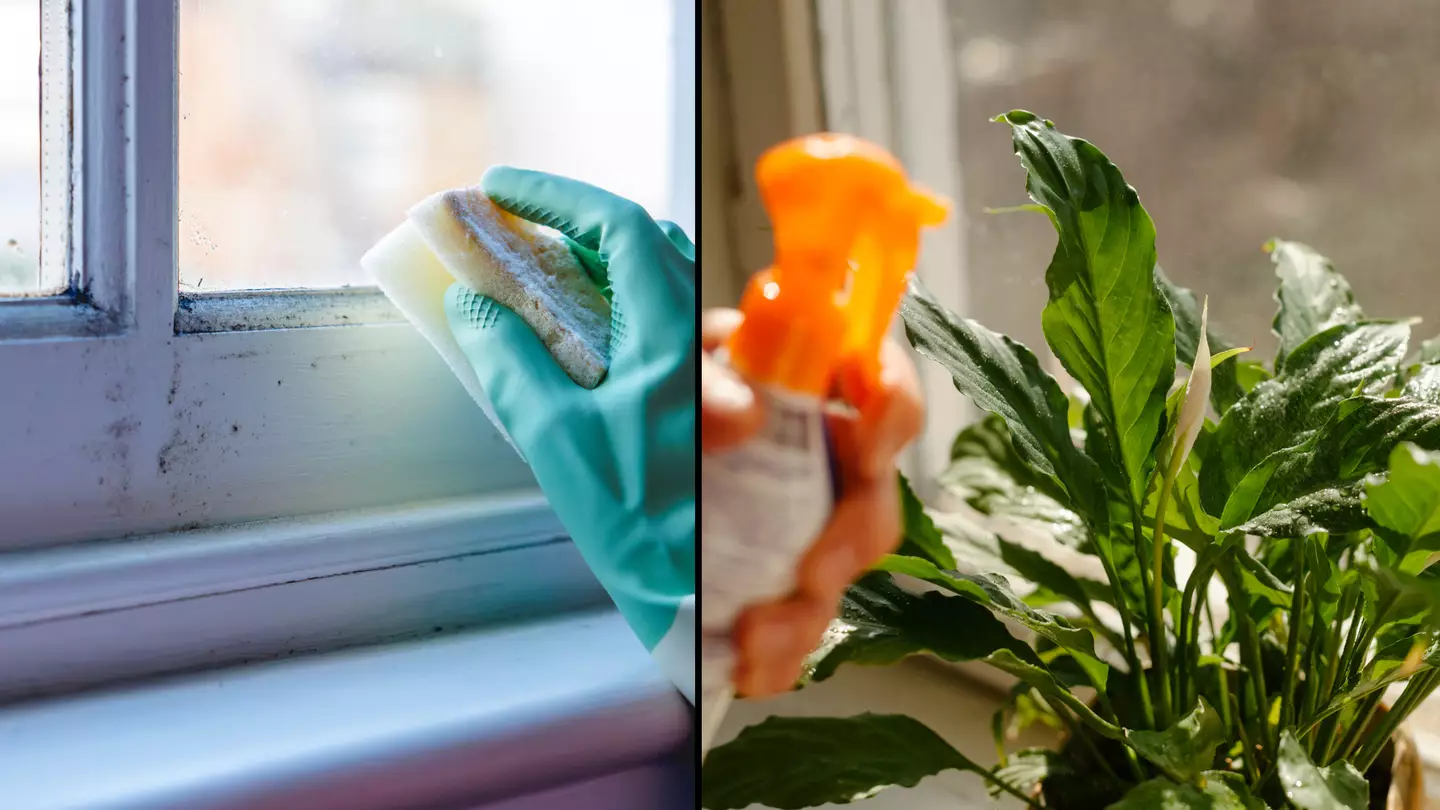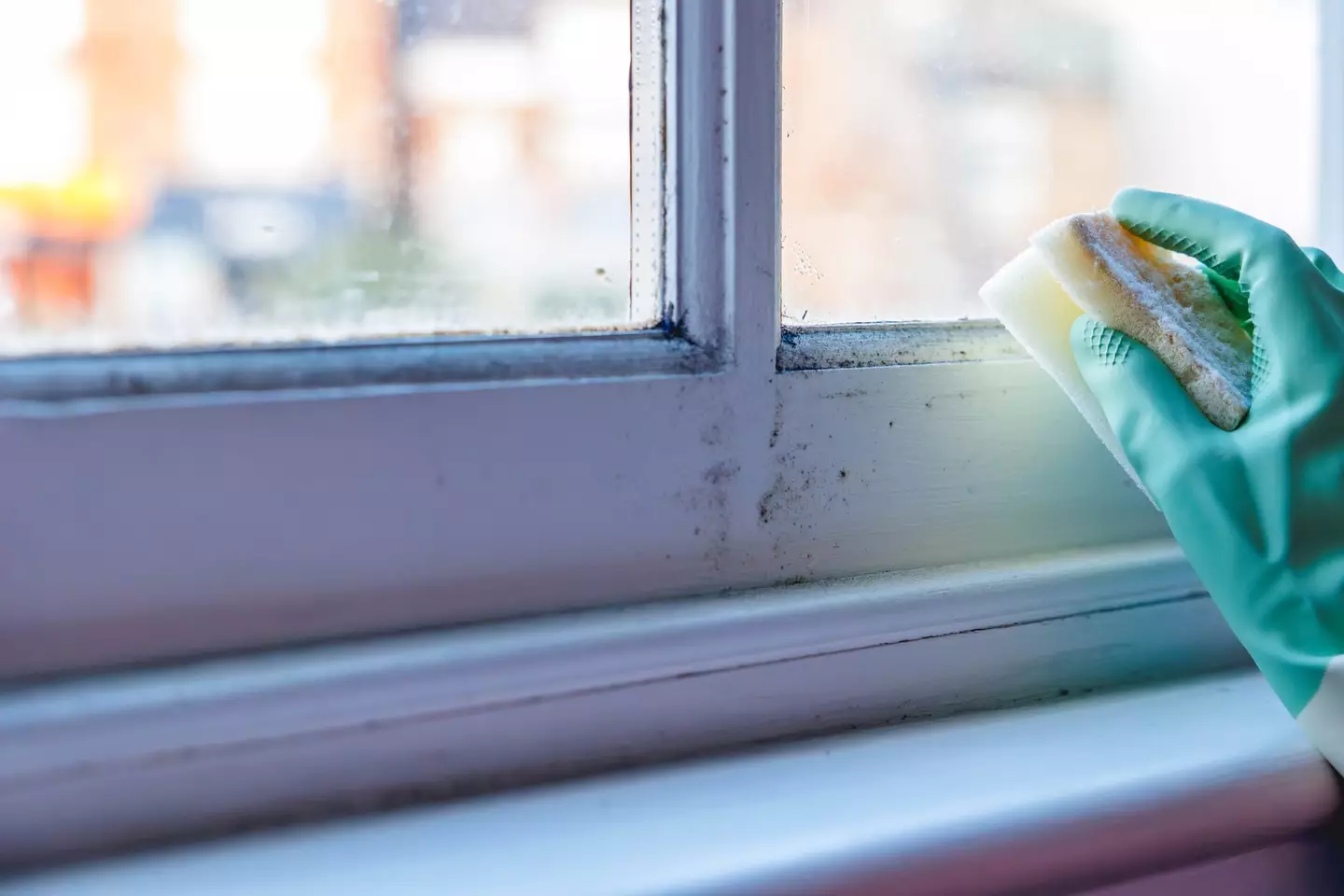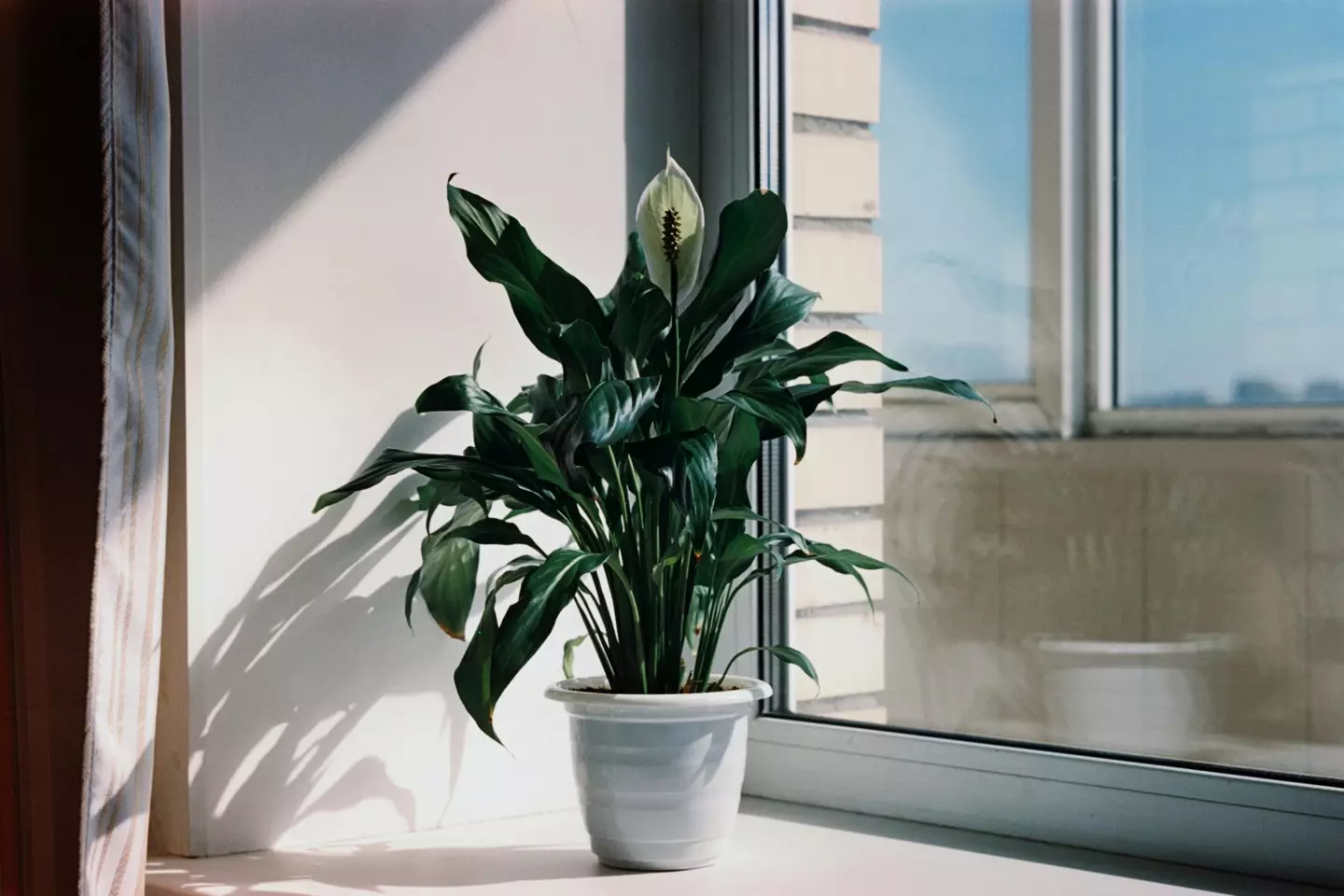
People living with black mould in their homes are being urged to pick up a common household item that could help.
Black mould tends to worsen during the winter when our homes are colder and more damp and can be exacerbated by things like having to dry your clothes indoors.
If mould is left untreated, as well as looking pretty grim, it can also have a detrimental impact on your health.
Black mould can trigger asthma attacks and cause allergic reactions such as skin rashes, a runny nose and red eyes.
Advert
Those with compromised immune systems, such as babies and the elderly, are more at risk of the symptoms. And in some more serious cases, mould in homes can lead to fatalities.
The microscopic fungus thrives in damp places, which is why it's common in bathrooms and kitchens.
You can identify mould in your home as it has a few noticeable characteristics.

Mould is often fuzzy with black, white or green patches and comes with a musty smell.
Advert
You can try various things, such as taking shorter showers, using the extractor fan or opening a window while cooking, and wiping down damp surfaces such as windowsills to help stop the mould growing.
Make sure you also check for leaky pipes or guttering that can make things worse, too.
And if you’re already doing all of that, then you can also get yourself some plants which can help.
Yep, according to the experts at Atkins Garden shop, several green plants can help combat mould growing.
Speaking to the Express, the expert recommends picking up a peace lily - as the plants are ‘effective at combating condensation’.
Advert

They absorb moisture from the air, which can help reduce the amount of condensation you see in your home.
They also look pretty good.
Snake plants use a similar process, taking in moisture from the air through pores in their leaves and releasing it again at night.
This ongoing cycle can help to balance the humidity levels in your home. Clever, eh?
Advert
A Boston fern works in a similar way, according to the professionals.
Spider plants were also hailed by the experts, who said: “Spider plants are incredibly low maintenance and budget-friendly. They take in damp and moisture through their leaves while balancing out humidity levels.”
An aloe vera plant also does the job - albeit on a lesser scale - and can help prevent condensation build up.
Just don’t forget to water them, yeah?